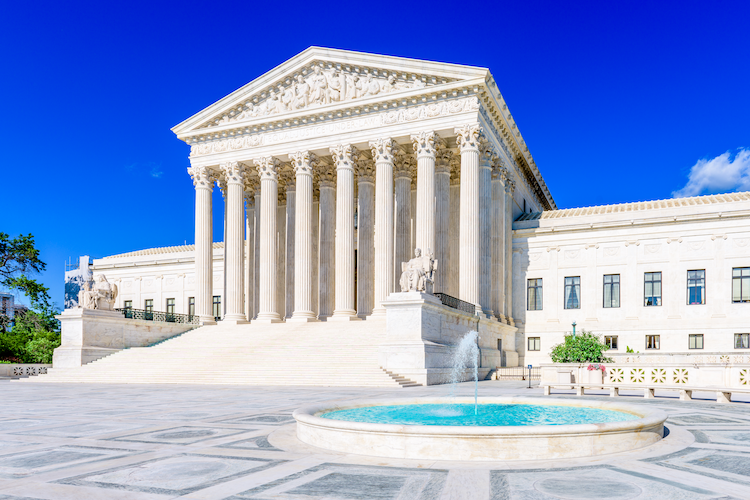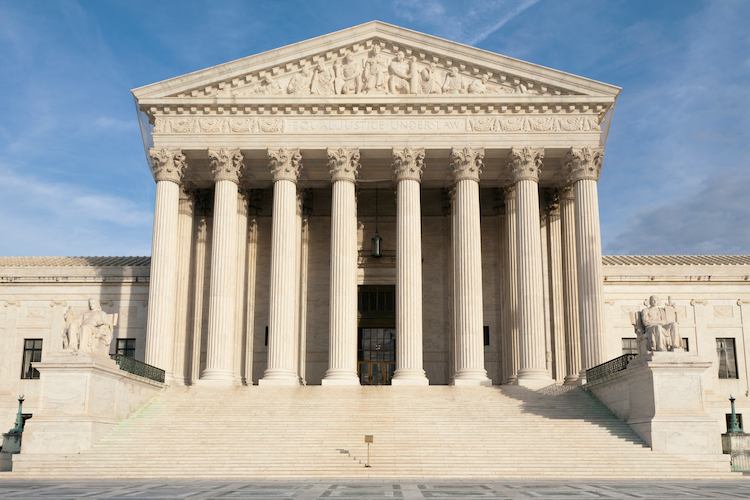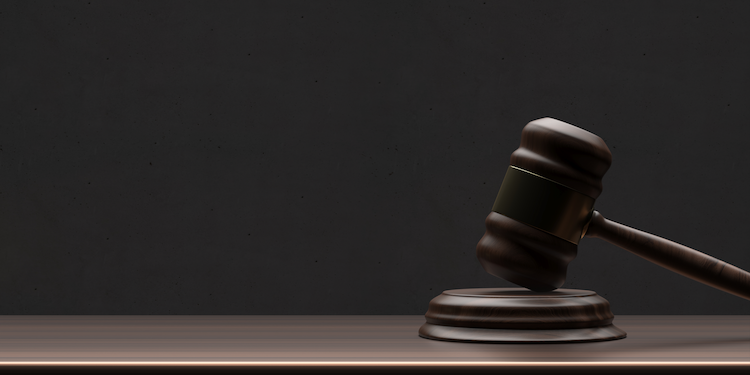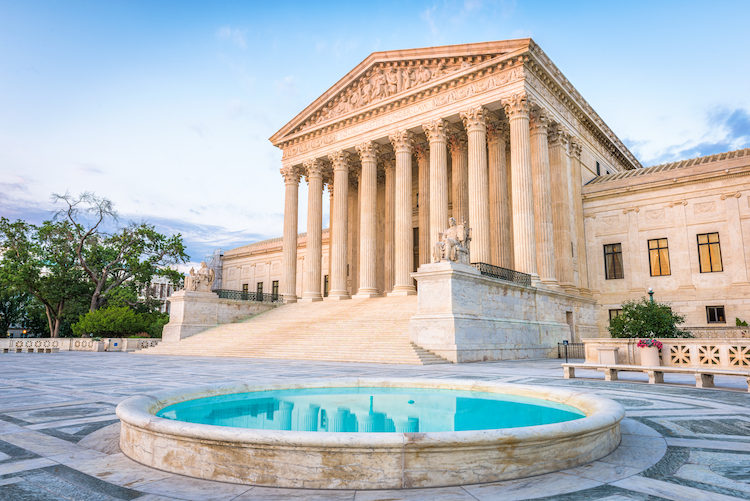Menu
Hot-Topics
February 5, 2026 | SCOTUS Decision in Bowe v. United States Is First of the 2026 Term
Month: August 2023

Supreme Court Upholds Corporate Personal Jurisdiction Laws
In Mallory v. Norfolk Southern Railway Co., 600 U.S. ____ (2023), the U.S. Supreme Court upheld the constitutionality of state laws requiring corporations operating within their borders to consent to personal jurisdiction when they register to do bu...

SCOTUS Rules Retrial Is Constitutional After Conviction in Improper Venue
In Smith v. the United States, 599 U.S. ____ (2023), the U.S. Supreme Court unanimously held that the Constitution permits the retrial of a defendant following a trial in an improper venue conducted before a jury drawn from the wrong district. Fa...

SCOTUS Limits Foreign Reach of Trademark Law
In Abitron Austria GmbH v. Hetronic Int’l, Inc., 600 U.S. ____ (2023), the U.S. Supreme Court held that the trademark infringement provisions of the Lanham Act do not apply extraterritorially, but rather extend only to claims where the infringing ...

SCOTUS Rules Retrial Is Constitutional After Conviction in Improper Venue
In Smith v. the United States, 599 U.S. ____ (2023), the U.S. Supreme Court unanimously held that the Constitution permits the retrial of a defendant following a trial in an improper venue conducted before a jury drawn from the wrong district. Fa...

SCOTUS Adopts New Standard for Religious Accommodations Cases
In Groff v. DeJoy, 600 U.S. ____ (2023), the U.S. Supreme Court modified the religious accommodation standard under Title VII of the Civil Rights Act, which requires employers to accommodate the religious practice of their employees unless doing so ...

Student Loan Forgiveness Program Fails to Survive Supreme Court Scrutiny
In Biden v. Nebraska, 600 U.S. ____ (2023), the U.S. Supreme Court struck down the Biden Administration’s student loan forgiveness program. Relying on “ordinary tools of statutory interpretation,” the six-member majority found that the Secreta...
Previous Articles
SCOTUS Rules State Can’t Immunize Parties from Federal Civil Liability
by DONALD SCARINCI on January 29, 2026
In John Doe v. Dynamic Physical Therapy, LLC, 607 U.S. ____ (2025) the U.S. Supreme Court held that...
Supreme Court to Address Racial Discrimination in Jury Selection
by DONALD SCARINCI onWhile the U.S. Supreme Court has concluded oral arguments for the year, it continues to add cases t...
Supreme Court Halts Deployment of National Guard to Chicago
by DONALD SCARINCI on
In Trump v. Illinois, 607 U.S. ____ (2025), the U.S. Supreme Court refused to stay a district court...
The Amendments
-
Amendment1
- Establishment ClauseFree Exercise Clause
- Freedom of Speech
- Freedoms of Press
- Freedom of Assembly, and Petitition
-
Amendment2
- The Right to Bear Arms
-
Amendment4
- Unreasonable Searches and Seizures
-
Amendment5
- Due Process
- Eminent Domain
- Rights of Criminal Defendants
Preamble to the Bill of Rights
Congress of the United States begun and held at the City of New-York, on Wednesday the fourth of March, one thousand seven hundred and eighty nine.
THE Conventions of a number of the States, having at the time of their adopting the Constitution, expressed a desire, in order to prevent misconstruction or abuse of its powers, that further declaratory and restrictive clauses should be added: And as extending the ground of public confidence in the Government, will best ensure the beneficent ends of its institution.
Awards





